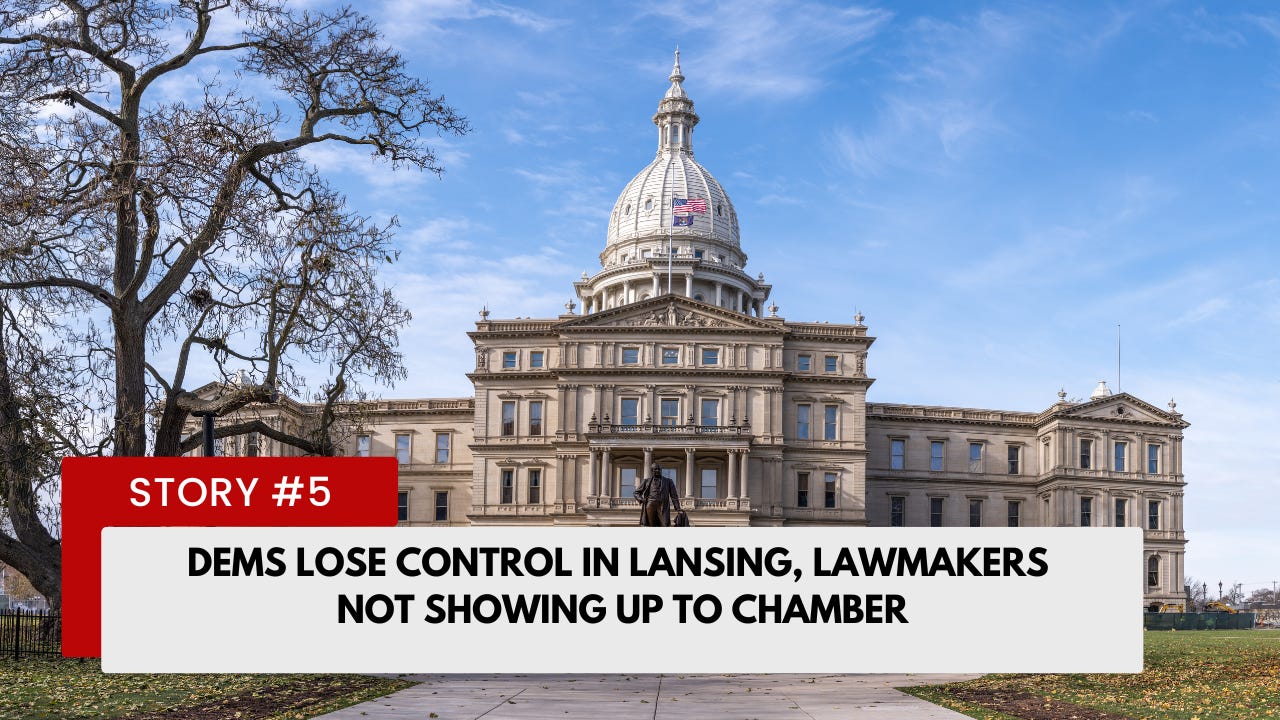

POLAND - Poland is reportedly the first European Union (EU) nation to mandate firearms training for schoolchildren. Per DW, these firearms courses will be “compulsory for primarly schoolchildren in preparation of a potential Russian attack.”
Firearms lessons are now compulsory for schoolchildren - even at a young age. This is how Poland is preparing itself for a potential Russian attack. The children are enjoying it, and their parents feel proud.
If you think Poland is based, it’s because they’re anti-Kremlin and remember how Russians treated them. (Thank NATO, however imperfect, too!) Soviet horrors are still very raw to Poles. Poland, like my ancestral homeland Lithuania, is all too familiar with Russian occupation—especially the Soviet variant that spanned five decades. Not to mention Nazi occupation before that.
Although I’m a first-generation American, friends here tell me firearms lessons used to be common in grade school. While less prevalent today - due to gun control efforts, media fear-mongering, and increased urbanization - these courses can still be found in parts of the South, Mountain West, and in Alaska. But seeing Europe jump on this trend, despite having no Second Amendment enshrined in their individual constitutions, is wonderful to see. Click here to read more.

WASHINGTON D.C. -On December 6, 2024, a federal judge ordered the US Food and Drug Administration (FDA) to release documents related to the emergency use authorisation of Pfizer's COVID-19 vaccine. These documents had been hidden from public view.
The legal battle traces back to September 2021, when attorney Aaron Siri filed a lawsuit under the Freedom of Information Act (FOIA) on behalf of the Public Health and Medical Professionals for Transparency. The plaintiffs sought access to the vast trove of documents the FDA relied on to approve Pfizer's vaccine.
Initially, the FDA proposed a slow release schedule. In November 2021, the agency stated it would release just 500 pages per month—a pace that would have stretched the full disclosure process to 75 years.
However, in January 2022, District Judge Mark Pittman of Texas rejected the FDA’s proposal, ordering the agency to expedite its release to 55,000 pages per month, aiming to complete the disclosure of all 450,000 pages by August 2022.
As the documents trickled out, researchers began uncovering glaring gaps that prevented a systematic review of the data. These gaps fueled suspicions about what else the FDA might be withholding. Click here to read more.

COLUMBUS, OH - An Ohio school district will pay nearly half a million dollars to a teacher who was forced to resign after she said she could not use trans-identifying students’ new names and pronouns due to her Christian faith, The Daily Wire has learned.
English teacher Vivian Geraghty, 26, won a $450,000 settlement from the Jackson Local School District south of Columbus, her legal team announced Wednesday. She will not be returning to work for the district.
Two years ago, Geraghty was unceremoniously fired by Jackson Memorial Middle School when two students asked Geraghty to use new names that aligned “with their new gender identities rather than their legal names.” One of the students also requested that teachers use a preferred pronoun that did not reflect the student’s biological sex, her lawsuit said.
Geraghty went to the principal in hopes of reaching a solution, but the principal and his superior, the director of curriculum, instruction, and assessment, told her “she would be required to put her beliefs aside as a public servant,” according to the lawsuit. She was allegedly accused of insubordination and told that continuing to teach without participating in the students’ gender transitions would “not work in a district like Jackson.” Click here to read more.

SACRAMENTO, CALIF - WASHINGTON (TNND) — The U.S. Environmental Protection Agency on Wednesday approved a California regulation to phase out the sale of gas-powered cars.
The California Air Resources Board adopted the "Advanced Clean Cars II" in 2022, which mandated all vehicles sold in California from 2035 onward produce zero emissions. The rule required a waiver from federal regulators under the Clean Air Act.
EPA Administrator Michael S. Regan granted that waiver Wednesday, allowing the state to gradually roll out its zero-emission plan over the next 11 years. The rollout will require at least 35% of 2026 model year vehicles to be zero-emission vehicles or plug-in hybrids.
“California has longstanding authority to request waivers from EPA to protect its residents from dangerous air pollution coming from mobile sources like cars and trucks,” Ragan said. "Today’s actions follow through on EPA’s commitment to partner with states to reduce emissions and act on the threat of climate change.”
The American Petroleum Institute, an oil and gas trade association, issued a scathing statement Wednesday in response to the waiver urging President-elect Donald Trump to reverse course when his administration takes control in January. Click here to read more.

LANSING, Mich - The lame duck session in Lansing is proving to live up to its name as Democrats lose the last bit of control over their party in the waning days of their majority power.
State Sen. Sylvia Santana (D-Detroit) joined Rep. Karen Whitsett (D-Detroit) on Wednesday. Both said they will not attend Wednesday’s scheduled session in Lansing. Rep. Whitsett said on Tuesday night she would not show up until serious issues that impact her constituents are taken up by Democratic leadership.
Whitsett’s announcement came a day after outgoing Michigan Democratic Party Chair Lavora Barnes sent a scathing email blasting Republicans for not showing up to work. “After walking away from their jobs last week, the question remains as to whether they’ll show up this week, leaving millions of Michiganders unsure if they’re paying their representatives to sit on their hands,” Barnes wrote.
Republicans regained control of Michigan’s House on Nov. 5. They take office on Jan 1.
Michigan House Speaker Joe Tate (D-Detroit) could enact a chamber rule that allows the sergeant-at-arms to bring the lawmakers back. Click here to read more.



















